Cuban Society 107
The So-Called “San Isidro” Case
MONCADA Lectores
The So-Called “San Isidro” case
 by Esteban Morales
by Esteban Morales
Translated and edited by Walter Lippmann for CubaNews
I believe that what is happening there is a consequence of not having taken care of four fundamental issues in time:
1- The marginal conditions of some of our neighborhoods in Havana.
2-The lack of attention or delay in recognizing and using the Social Sciences.
3- In spite of Fidel’s early warning, having neglected, for a long time, the racial question.
4-Some deficiencies in our political-ideological work.
On the last three points, I have warned enough.
But as a result of my warnings, I was never called to the Round Table, and when the faces of its protagonists appear, mine is never there. In spite of having been, individually, among those who have attended the Round Table the most.
None of those who used to publish me now publish me. They have not called me anymore to Cuban Television. Luckily TELESUR gave me a job.
I have also written many works on the racial question, three books and dozens of articles, always warning about the role that the Social Sciences should play and about the importance of ideological work. I am sure you have read some of them. In them, I have had to fight many battles, so that they do not accuse me of being a racist, accept my criticisms as necessary and do not believe that because I have traveled a lot to the United States, I have brought these things from there. Of which I have been accused more than a few times. Racism and discrimination were not brought by anyone, from anywhere. They are here, because they were born, with us, as a nation. And from here we will eliminate them someday. For the glory of all Cubans. We are already working on it within a Governmental Commission, presided over by Miguel Diaz Canel, President of the Republic.
We have slums, which I know very well, because I have visited them, so that no one can tell me about them. And, in addition, because when I had to come from my town, to Havana, in October 1958, I lived, beyond the triumph of the Revolution, in the Jesus Maria neighborhood, in Vives Street No. 258 between Alambique and San Nicolas. I know the neighborhood very well, because I participated in the La Coubre, joined the Young Rebels there and worked in the Provincial Directorate of 26th of July, which was on Arroyo and 27th.
In those neighborhoods, the standard of living is very low, it always was. They are plagued by delinquents, prostitutes, and poor people, who live on the day-to-day things they can get. It does not mean that all their neighbors are prostitutes, antisocial and delinquents.
Many decent and revolutionary people also live there. But this is the environment that has always tended to dominate. In general, social relations, forms of behavior and mentality are still far removed from what is reflected in our journalistic, radio and television media. The state of the houses, the streets, the material conditions, do not contribute to generating a healthy social environment. As a result, many families struggle to move to other neighborhoods and the worst remains in the neighborhood.
Thus, attitudes, forms of behavior, colloquial language, philosophy of life are generated, all of which are very different from the environment in which most of us live and develop.
In general, there are no reading habits, interest in studying is very low, the sense of intellectual and cultural improvement is also very low. Access to the University is very limited.
Most of them are interested in earning money, or rather in having it, even if they do not seek it by lawful and moral means. Therefore, whoever offers them money, buys not a few, with relative ease, even if it is to carry out antisocial activities, and sometimes even counterrevolutionary activities.
Excessive drinking is very common among the type of person who live in this neighborhood. Rather, not a few of them are interested in partying and getting drunk. As a result, the vast majority of them, within the environment in which they live, are not interested in standing out for the positive, but for the negative, which not a few exacerbate. In their dress, their speech, their behavior, the way they behave socially, the way they treat women.
So then, the people, let’s call them normal, who live there, suffer a kind of cornering. That forces them to move away, so as not to suffer the negative consequences of being forced to live under such conditions.
The environment in which they live, tends to generate an ethic of permissibility, before any crime. A similar type of behavior is the treatment that women generally receive. Women often react in the same way, with a tendency to associate with these types of men, who some consider more “macho”. Generally, this type of woman, when receiving from the man any cultured attention, respectful treatment or delicacy, confuse them with homosexuality, as a lazy and effeminate type. This serves to fuel rude and disrespectful behavior, with a tendency to brutality towards them. Without realizing, sometimes, that they themselves contribute to the worse treatment they are subjected to. So then, feminism, the struggle for equality and recognition of women’s status, does not have much space among many of them.
They despise the laws, those who apply them, the police, in particular, they hate them and do not deserve any respect. They see them as their enemies and never as agents of order or guardians of good morals. For this reason, the tendency is not to inform on anyone, regardless of the crime they may have committed. This is considered as an act of “snitching”, lack of manhood, which many consider should be punished, even with a beating or death. Revenge is a typical phenomenon of social behavior.
They were not born this way, but, not infrequently, the example they receive at home, is forming them in this way; because, not infrequently, the same parents, inoculate them with customs, forms of behavior, values, ethics, inverse to those that the average of the society demands of them. From here also, sometimes, developed their behavior regarding education, respect to teachers, authority and government institutions.
In their eyes, the ideological work that is done is looked down upon, the work of the UJC seems to them as elitist and that of the rest of the organizations do not manage to attract them to good manners.
Fidel was very concerned about this, when he spoke several times about the racial question and generated the “Social Workers”, in view of the reality of the number of young people who neither studied nor worked. It was said that there were about 80,000 in the province of Havana. I also oriented to make investigations to know what was happening with the children in these neighborhoods. If the mothers had enough money to buy food for them, if the children had a television set and toys, etc. Trying to alleviate a social situation that could already be considered critical.
But all this remained in Fidel’s good intentions and the work that was being done was not continued. We were coming from a situation in which prostitution, drugs and these social problems were not considered to have a place in our society. But Fidel perceived them clearly from the beginning and oriented work toward them.
Today then, these neighborhoods are affected by delinquency, drugs, people without ideology, the unclassed, the marginalized, to whom we have already arrived too late. The consequences are manifesting themselves.
In these neighborhoods, in general, the revolution has not been able to reproduce itself and the counterrevolution, which has always stalked them, does not find it very difficult to attract them. If we add to this, the Pandemic and the difficult economic conditions we are going through today, I would say that we are in the most complex situation to address their problems. Although I am sure we are going to do it. Because our social policy and the interest that “no one is left helpless” are real. And they are being reinforced within the current economic policy.
They would not have been counterrevolutionaries, in their immense majority, but we, with our inattention and deficient political-ideological work, have been giving them away to the counterrevolution. Perhaps, without realizing it. So, if the revolution had managed to work more strongly against inequalities, the racial question, marginality, invisibilization; if our television and our media in general, had always been more visible of the differences, had debated more our problems, of things about which we are only beginning to talk about now, it would have been less difficult to fight against that environment and rescue its victims from the problems that now afflict them. And that the counterrevolution takes advantage of.
But we concentrate on the advances, neglecting the fact that not all of us have arrived in the same way to the current Cuban society and those have been left behind. Being the majority, blacks and mestizos, unfortunately, poor in general. They are the ones who were more directly affected by the “starting points”, farther away from the social and cultural welfare that the revolution, from the beginning, has lavished on many.
San Isidro is not the only neighborhood in Havana with these inequalities, marginalities and social disadvantages that have degenerated into the counterrevolutionary attitudes of a few.
There are other neighborhoods. And not only in the Capital.
What should we do now?
I believe that we should pay attention, with urgency, to the following issues:
1- We must pay attention to the material needs of those neighborhoods, in order to improve them. No promises, no propaganda. Just start. To make people see that their material situation begins to improve.
2- It is necessary to work on those neighborhoods with quality ideological and cultural work. Not with speeches or talks. Nor with master classes.
3- The situation of all those neighborhoods, Cuasi cuaba, La Lisa, Siboney, Atares, Luyano, etc., must be reviewed. If they have not turned around, it is because there are community projects and positive neighborhood leadership.
4- It is necessary to dust off everything that the Social Sciences have investigated and put it into execution. Formulate new projects and finish giving the Social Sciences the place they deserve, within the general scientific work and in the treatment of problems, in particular. There is scientific potential to do so.
5- The party must thoroughly review the work of the Ideological Apparatus and turn part of the tasks of its cadres in the directions that this situation demands.
6- The neighborhood of San Isidro, it is necessary to negotiate with them. See what they want. Take them to the logic of what they can ask for. And try to convince them of what cannot be given to them.
7- Formulate a strategy to help the nuclei of the party in situations of this nature. Because I am convinced that this struggle continues. And the insurmountable ones, already on the side of the counterrevolution, will continue, as long as they can, taking advantage of the complex situation the country is going through, to fulfill their purposes linked to the current US policy towards Cuba.
Biden already gave them the human rights policy, in his recent report, with which they will continue to pressure and perhaps do nothing to help the country solve its difficulties. On the contrary, they will try to exacerbate them. Generating a waiting period to see how the story ends.
Havana, April 18, 2021
Family violence: new views

A MATTER OF LAW
Family violence: new views from the legal system
The new Family Code is one of the norms that should be born in line with the constitutional precepts regarding the approach to violence in this area
Translated and edited by Walter Lippmann for CubaNews.
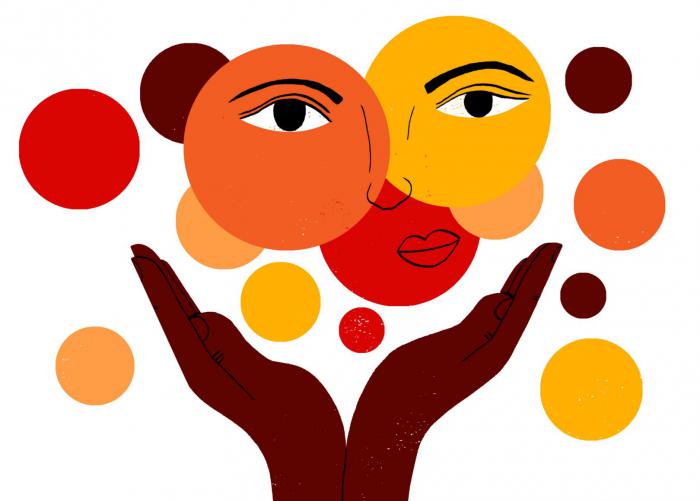
Photo: Internet
Myths about family violence are as old as each of its manifestations. And they are absolutely false.
That only physical assaults are expressions of violence, and that nothing else occurs in low-income households in marginal places, are some of the most common beliefs.
The reality, however, confirms daily, with sufficient eloquence, that violence can also be psychological, economic, patrimonial and can occur in all types of families, regardless of their economic or cultural level.
“She (or he) asked for it”, “jealousy is a manifestation of love”, “what happens in the family, good or bad, stays in the family”, “the letter with blood enters”, are also phrases that swell the bulky list of myths that, in the opinion of specialists, make the victim responsible, harm her perception of the abuse and neutralize her reaction and denunciation.
For Dr. Yamila González Ferrer, Vice President of the National Union of Jurists of Cuba (UNJC) and of the Cuban Society of Civil and Family Law, “the Cuban Constitution gives the highest rank to the prevention and attention to violence in the family space”.
Both in this area (Art. 85), adds the also titular professor of the Faculty of Law of the University of Havana, and in what refers to gender violence (Art. 43) and against children and adolescents (Art. 84 and 86), the 2019 Magna Carta is located in a remarkable place on a planetary scale in the constitutional approach to this issue.
The Law on Laws, specifically in Article 85, states that: “family violence, in any of its manifestations, is considered destructive of the persons involved, of families and of society, and is sanctioned by law”.
Such projection, González Ferrer considers, is comprehensive of the three scopes in which the violence in the familiar space affects negatively, and that cannot be lost sight of: the individual, the familiar one and the social one. In that same sense, the precept opens its protective fan to all the manifestations in which it can appear.
Nevertheless, the expert clarifies, “except in cases where its scope requires treatment in criminal proceedings, family violence does not usually generate any palpable legal consequence in Cuba today.
“Hence the need to promote the improvement of legal mechanisms and public policies, so that there is no impunity and the highest protection is provided to the victims”.
According to González Ferrer, it is necessary to elaborate new legal provisions and to modify or perfect other existing ones, not only in substantive family matters, but also in contractual, succession, procedural and criminal matters, so that it is possible to develop the constitutional postulates.
The new Family Code, therefore, is one of the norms that should be born tempered to the precepts of the Magna Carta as to the treatment of family violence, as well as to the protection against any of its manifestations.
THE ROOTS OF PAIN
Yamila González, who also coordinates the UNJC’s Gender Justice Project, insists on defining what family violence is, and what its causes and types are, because one must always know the phenomenon in order to face it and avoid it.
According to the professor, violence in family contexts is part of the network of violence that exists in society. It is, in turn, a universal phenomenon, with its concrete historical characteristics and the peculiarities of each family group; it is a social problem that has different causes and dimensions and encompasses all types of existing families.
The very patriarchal structure of the family, recognizes González Ferrer, “makes it one of the most violent social institutions, since it develops asymmetrical power relations through gender and generation, which are the guarantors of the legitimization and reproduction of the patriarchy as a system of domination”.
Based on its interdependence with the environment, “family violence must be understood as a process. It is not casual or established overnight, but has a painful path of formation, which is established in the family climate through an endless cycle of very harmful behaviors for human beings.”
In the opinion of the Vice President of the UNJC, violence is a cultural problem, not entirely legal, so it must act on the social, educational, cultural resources that make it possible, without disregarding the use of law as and when appropriate.
In conceptual terms, she emphasizes, “family or intra-family violence is that which occurs within the family. It refers to any form of abuse that occurs among its members, and implies an imbalance of power that is exercised from the strongest to the weakest”.
The expressions of family violence are the physical, psychic, moral, sexual, economic or patrimonial abuse, either by action or omission, direct or indirect, in which aggressors and victims maintain or have maintained couple relationships, as well as the one that takes place between relatives. The same treatment must be given to acts of this nature committed between people in cohabiting relationships.
In the words of the expert, there are three significant ways in which family violence is expressed, since in the patriarchal, hierarchical family, power is exercised along two fundamental lines: gender and generation.
GENDER VIOLENCE
It is a very particular type of violence, based on a patriarchal culture, rooted in the inequality of power between men and women. It is based on sexist stereotypes, which generate prejudice and lead to expressions of discrimination based on sex, gender, sexual orientation or gender identity.
It can be physical, psychological, sexual, moral, symbolic, economic, or patrimonial, and has a negative impact on the enjoyment of rights, freedoms, and the integral well-being of people.
It occurs in family, work, school, political, cultural, and any other environment in society. Its most generalized, frequent and significant expression is that which occurs against women.
Nevertheless, gender violence against men exists, such as homophobia, for example, when they are attacked for having transgressed gender norms from the canons of hegemonic masculinity; or the mocking and questioning that those who assume co-responsibility for domestic tasks and the care of their children may receive and are then criticized by their relatives, co-workers, or friends.
VIOLENCE AGAINST THE ELDERLY AND THOSE WITH DISABILITIES
It is one that manifests itself against people because of aging, given the decrease in their physical and intellectual capacities, economic and social participation.
Its most common expressions are physical and emotional abandonment, hygienic, medical and food neglect, underestimation, financial and patrimonial manipulation, physical and verbal abuse.
VIOLENCE AGAINST CHILDREN AND ADOLESCENTS
This is what happens with respect to children and adolescents because of their condition as developing persons. Even if it is not directly about them, it is considered direct violence because it affects the adequate development of their personality and the feeling of security and trust in those around them, with transcendence to their social life.
On this sensitive subject, some think that, in situations of violence within the family, if it is not about the person of the son or daughter, there is no significant level of affectation, when the damage derived from living in violent environments is severe for the integral development of their personality and with very negative consequences towards the future.
Whatever the nature of the conflicts, Gonzalez Ferrer says, “their solution should not be managed in a violent way but through communication and negotiation. There is an urgent need for education and a culture of peace, of respect for human rights, based on the need to learn to live and relate in harmony.
Taking care of my health, and yours

Taking care of my health, I take care of yours
People over 59 years old and children under one year old are essentially symptomatic, but the rest can carry the disease without being suspected. That is why it is vital to respect to the letter the established biosecurity norms
Author:

Ana María Domínguez Cruz
anamaria@juventudrebelde.cu
Translated and edited by Walter Lippmann for CubaNews.
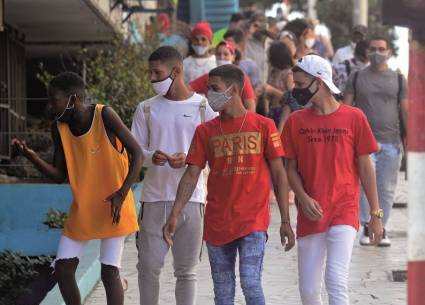
Young people are the ones who most often transit as asymptomatic. Author: Abel Rojas Barallobre Published: 19/01/2021 | 12:03 am
Where were you? Who did you meet? These and many other questions make up the survey that, with rigor and specificity, is carried out on each person who, confirmed as positive to COVID-19 or as a suspect, arrives at a hospital in our country.
It seems routine, but it can be very overwhelming, both for the patient, who suffers from that indescribable mixture of fear, uncertainty and anxiety; and for the health personnel who, with the required clothing, approach him/her without wanting to violate the health protocols, although with the desire to make him/her feel better.
This is what Niurka Molina Aguila, a specialist in II degree in Hygiene and Epidemiology, tells us, who carried out numerous surveys of this type as part of her work at the Pedro Kourí Institute of Tropical Medicine (IPK).
“Do you know what is the most important and, at the same time, most overwhelming, especially for the patient? It is necessary to answer these questions by appealing to the memory as accurately as possible because it is urgent that the answers refer to the 14 days prior to detection. This is the only way we can properly follow the transmission chain,” she assures us.
It is hard to imagine, but this is the day-to-day work of epidemiologists and other specialists who have been working for months in the midst of a scenario as hostile as the one imposed by COVID-19 on the world.
“The greatest danger of this disease lies not only in the very act of suffering it, but in asymptomatic people who, precisely because they do not feel anything that alarms them, carry out their usual activities and have contact with others, and become carriers with the same risk of transmission as those who do manifest the symptoms.
“Who are these asymptomatic people? You, me, that one, her…, but fundamentally the young people. People over 59 years and children under one year are essentially symptomatic, the rest, adolescents, young people and adults of less age, can carry the disease without suspicion. Til/khat is why it is vital to respect to the letter the established biosecurity norms”.
I do not feel, but I suffer
Based on research carried out at the IPK since last year (which has not been published), when cases of the disease began to be reported in the country, it has been assessed during all this time that about 63 percent of the people identified as positive were asymptomatic. This figure, logically, increases as contact searches are carried out through active surveillance, that is, through research.
The also Master in Infectious Diseases specifies that this study covered Havana, fundamentally, but it will continue to evaluate the results according to a better work of prevention and control of COVID-19. “The disease has been known gradually, as people have become sick.
“Much is still unknown, and so describing symptoms is complex. We already see that sometimes the loss of taste and smell are the only symptoms, even, of the disease. Until it was proven in several patients, it could not be described as an associated symptomatology, and this has happened with other aspects.
“The main thing is to respect the established sanitary norms. We cannot get tired of repeating them and enforcing them, because it is the only way we have to make it clear that this disease will not disappear completely, but rather that we will live with it as a seasonal disease, like H1N1 or others.
-Even if they are asymptomatic, can these people suffer from the sequelae of the disease?
-Yes, it is possible. The sequelae left by COVID-19 have already been described in healthy people who suffered from it. Having symptoms or not, does not necessarily condition the appearance of the sequelae, but when in doubt it is better to avoid contagion.
-The vaccine is the hope…
-Because of our human condition, we need hope to move forward. Certainly, we are anxiously waiting for the vaccine, but the population must know that every vaccine has a time to raise the immunity of the organism. That we vaccinate ourselves today does not mean that tomorrow we are already immune to the virus, especially when new strains are reported from time to time.
“There are vaccines that require two doses, and completing the cycle is essential. However, from the appearance of new strains, it is preferred in not few cases to delay the application of the second dose, and this prolongs the immunization process”.
The doctor, also researcher and assistant professor, underlined that until there is not a high number, very high of vaccinated and immunized people, one will not be out of the greatest danger and never absent completely.
The Cuban population must be informed and correctly oriented, based on the results of the researches carried out and the patients’ reactions when they receive the vaccine.
“I do not intend to alarm, but it must be taken into consideration that another new strain of the virus may emerge and the vaccine may not have the capacity to face it, so it will be necessary to continue studying and creating.
“The health measures that are so much repeated today in the different media are for life, because from now on the world will no longer be the same as the one we knew before the pandemic.
“The family must insist on their children and demand that they respect these measures, because one of the greatest dangers of this pandemic is that health services will collapse, as has happened in other nations. Not only do they collapse because people get sick, but because they don’t avoid getting sick.
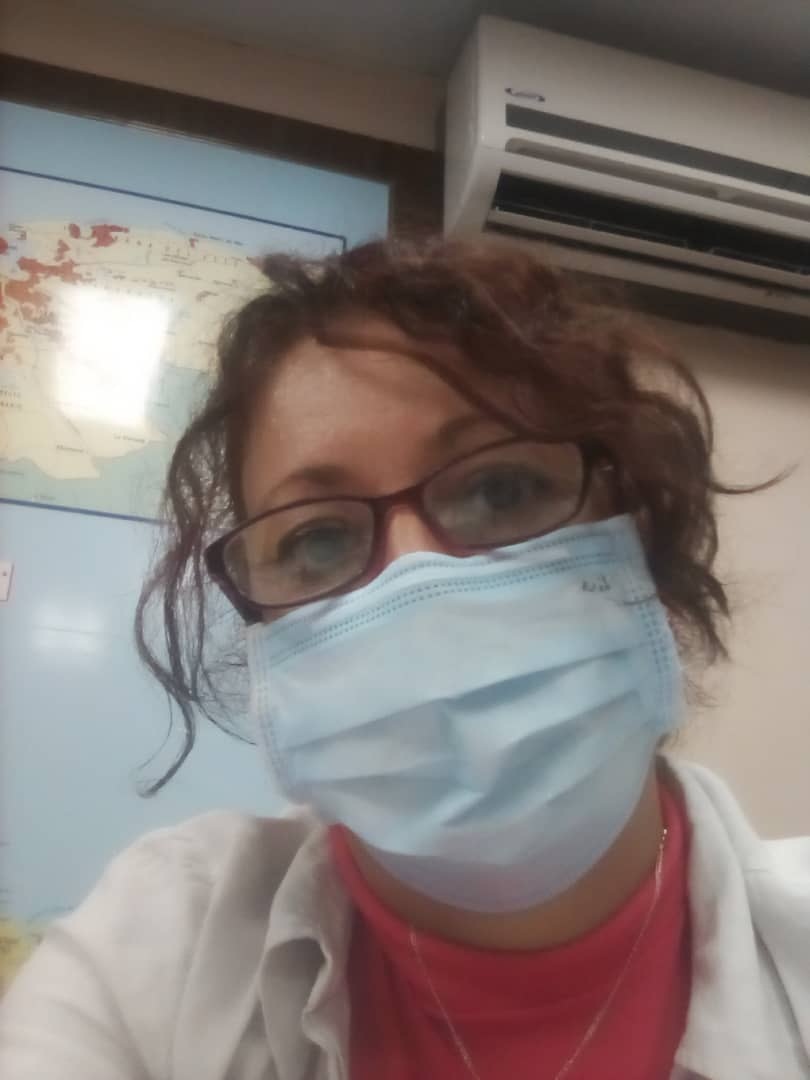
Niurka Molina Aguila, specialist in II degree in Hygiene and Epidemiology, researcher at the Pedro Kourí Institute of Tropical Medicine Photo: Courtesy of the interviewee
Molina Águila also mentioned the process of surrendering patients as convalescents. “Many times it is the time to complete the questionnaire that, when they first arrived at the institution, they could not continue with its completion”.
She emphasized that we should not go to closed places or places where crowds predominate, that the nasobuco should be worn correctly, that frequent hand washing should be deep, that when coughing or sneezing we should protect ourselves with our forearms, that we should maintain distance between one person and another.
“You, me, him, her… any one of us can transmit the disease without knowing it, and that’s what you have to understand. To the extent that someone who lives with other people takes better care of their health, their love and integrity cannot be questioned. These are not times to love as in the old days, but to demonstrate that by taking care of our life, we take care of the lives of others.
Why No Social Outbursts in Cuba?


FROM THE LEFT
Why are There No Social Outbursts in Cuba?
Despite the intense propaganda to which the US allocates tens of millions of dollars each year, the results are overwhelmingly favorable to the revolutionary leadership that Washington has been trying to overthrow for six decades
Author: Iroel Sánchez | internet@granma.cu
November 2, 2020 02:11:30
Translated and edited by Walter Lippmann for CubaNews.
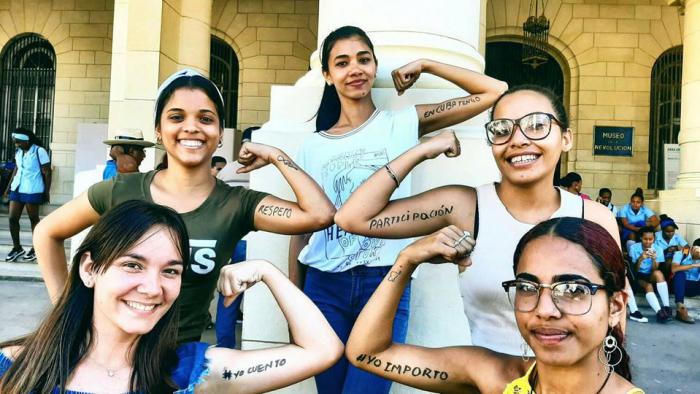
Young people
Photo: Taken from Karla Santana’s Facebook profile
A Brazilian friend who, as a journalist, was in Cuba for a few days, told me of her amazement at how all the Cubans she spoke to know who Bolsonaro is, who Dilma is and who Lula is, which was not the case in other Latin American countries she had visited recently.
The exceptional interest with which Cubans follow international events is something very particular that often goes unnoticed by those of us who live on the island. The social upheavals in Haiti, Chile, Panama and Ecuador, the conflict of powers in Peru, the endless repressions and assassinations of social leaders in Honduras and Colombia, the inherited ungovernability that forced the Mexican government to release a drug trafficker, the unjust imprisonment suffered by the leader of the Brazilian left to prevent his safe electoral victory and the elections in Bolivia and the United States, or Washington’s constant aggressions against Venezuela, can be topics of conversation anywhere in Cuba, from a corner where dominoes are played to a university classroom.
Of course, these conversations do not avoid the serious difficulties that the Cuban economy is going through, against which every week new US government sanctions are announced, nor any of the deficiencies in services with which the citizenry clashes. In these, the impact of the economic blockade can be mixed with bureaucratic laziness and cause discomfort and dissatisfaction.
However, this mixture of economic warfare with internal shortcomings does not cause social upheavals, and when the system – single-party socialism – has been put to the test at the ballot box, as in the recent constitutional referendum. This is so, despite the intense propaganda to which the US spends tens of millions of dollars each year and a well-funded “Cuba Internet Task Force”. The results have been overwhelmingly favorable to the revolutionary leadership that Washington has been trying to overthrow for six decades.
The explanation for the dominant media machine is that the mix of “intense regime repression” and “Cuban relaxation” prevents an outbreak. But in the history of Cuba –from Weyler’s reconcentration to Machado’s dictatorship to Batista’s– no regime based on repression has ever managed to remain in charge of the country for a long time, despite a “relaxation” in which corruption was the dynamic of the functioning of politics and the economy at all levels.
On the contrary, if instead of February 2019, the electoral consultation were to take place now, in the midst of an intensified blockade, the percentage of approval would probably exceed that obtained then, and that would be the result, without a doubt, of the combination of three conjunctural and two structural factors.
Conjunctural factors:
-
The intensification of the U.S. government’s aggressiveness strengthens patriotic sentiment and national unity.
The political effectiveness of the Cuban government, convincingly explaining the relationship of shortages with the increase in aggression, and the way in which the strategy to confront the US sanctions seeks to lessen their impact on the daily life of the people.
-
The international situation with visible failure of neo-liberal policies and discrediting of the formulas of bourgeois democracy
Structural:
-
The massive political culture among Cubans, established for 60 years by Fidel Castro’s teaching, about the nature of imperialism and the project of social justice and national sovereignty of the Revolution.
-
The link between the revolutionary leadership and the people, continued by the leadership of Raúl and supported by Díaz-Canel, which has reinforced the perception that the government listens to the people and works for them.
-
No Latin American country, of those who right now repress social protest with gunshots and gases and/or openly violate the rules of formal democracy that they themselves defend, has been subjected to economic warfare, to multi-million dollar financing to create an artificial opposition and, much less, to permanent global media and academic lynching of their leaders and their political and social project.
But in spite of all that, it must be recognized that there are dissatisfied people in Cuba, and many of those dissatisfied people are going to Miami. The accumulation of almost six decades of migratory privileges, together with the development of educational capabilities and the state of health brought about by Cuban socialism, make them very competitive with respect to the rest of the non-native communities, but they do not make them freer. More than one million Cubans in the US suffer serious limitations in their relations with their families in Cuba thanks to Trump’s measures; however, there is no news that this causes significant protests there.
Nor do we read anywhere that this public absence of disagreement is attributed to corruption and the repressive practices, not at all democratic, that the ruling class on the island until 1959 seems to have implanted in Miami during its already long stay in that city. This is not to disregard the uplifting example offered by a system that today puts Donald Trump and Joe Biden in competition, in corruption and insults.
Toiletries to Become Available

Toiletries are Going to Become Available
Authorities say that April will show some improvement in the supply of toiletries.
As of May and June the situation should be stable in the country.
——————————————————————————————–
by Yaditza del Sol González | internet@granma.cu
and Yudy Castro Morales | yudy@granma.cu
March 4, 2020 00:03:02
Translated and edited by Walter Lippmann for CubaNews.
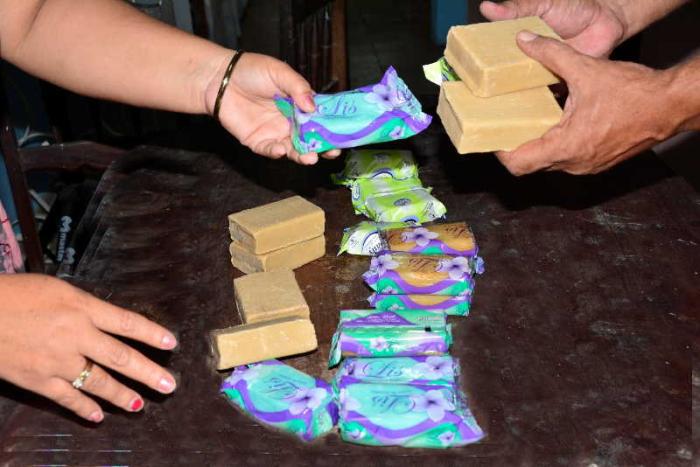
Toiletries, such as soap, toothpaste, liquid detergent and others sold in the retail network, should start to show greater availability in the market, even from March itself. Photo: Vicente Brito
Based on the current conditions of the national industry, the conciliation in terms of production and the assigned financing, the toiletries -such as soap, toothpaste, liquid detergent and others that are sold in the retail stores-must start to show a greater availability in the market, even from this month.
This was announced by Betsy Diaz Velazquez, head of Domestic Trade (Mincin). She explained that now in March, the levels of presence and assurance of these products will show better performance compared to previous weeks, which should go to stability once they begin to recover inventories.
In this regard, she added, April will also show some improvement, and from May and June the situation of sanitation should be stable in the country.
As to why these items are not marketed through the system of the ration book, perhaps as an emerging measure in the face of hoarding and re-sellers, the Minister explained that the toiletries can not be included in the basic family basket, as it would become a controlled product and, therefore, acquire rights.
If we do not have enough to put, for example, one soap per person, and ensure that it reaches the population according to the established cycles, then we can not assume control measures in the register of consumers, said Diaz Velazquez.
“What we can do, and do, is give the authorities of the territory the power to apply regulatory measures in the sale of products in high demand and with insufficient supply on the market. We are not talking about the administrator, but a power of governments and municipal administrations,” he said.
In addition, he insisted, there are certain items that can only market the units of MINCIN, such as Lis and Nacar soap, or liquid detergent Limtel. No one else is authorized, and anyone who incurs in this type of sales is acting illegally.
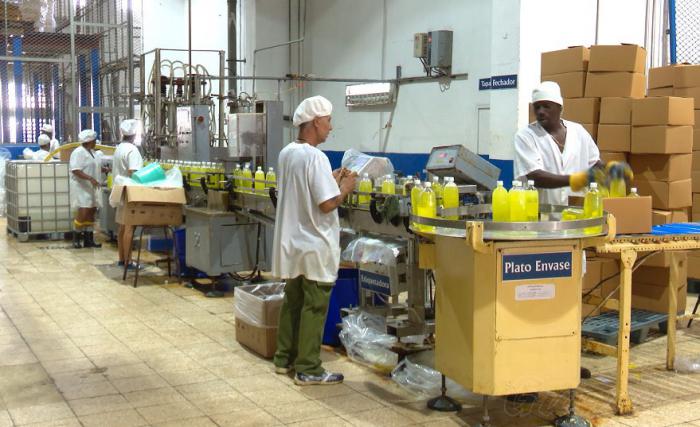
Since February, Suchel has had all the financing required to meet the planned levels of washing and toilet soap, liquid detergent and toothpaste. Photo: Granma Archive
AT THE SUCHEL COMPANY
Carlos Miguel Boggiano Sánchez, Managing Director of the company Suchel, agrees with the words of the head of MINCIN, telling Granma that “in May they will start to gradually improve deliveries, after achieving sustainability in their production and marketing”.
And more than goodwill or an optimistic attitude to support the announced stability, the company has, since February, “all the financing required to respond to the planned levels of laundry and toilet soap, liquid detergent and toothpaste”, products that showed sensitive deficits during 2019 and at the beginning of the year.
This guarantee, stressed Boggiano Sanchez, “marks the difference with respect to previous periods and ensures compliance with contracts for raw materials, as well as their arrival.
To get an idea of the recovery trend shown by the industry, it is appropriate to review the production indices for the first quarter of 2019 and those contemplated for the same stage in 2020.
During the first three months of the previous year, this entity delivered to MINCIN 7,806 tons of cleaning supplies, a figure that represented 16.1% of the 2019 plan.
However, at the end of March, the company must deliver 8296 tons, equivalent to 16,5 % of the forecast for 2020, a schedule that shows growth in the four families of products mentioned.
“From the raw material already available in the market, it is projected to exceed the production of the quarter by 380 tons of washing soap and 500 tons of liquid detergent”, said the CEO of Suchel.
It is precisely this last product, together with toothpaste, that has shown the greatest impact at the beginning of the year. It is estimated that it will recover, as of May, in the following order: detergent, although demand continues to exceed supply; laundry soap, toilet soap and toothpaste.
He said that, so far, the most significant deliveries are concentrated in the provinces of Havana, Matanzas, Villa Clara and Camagüey.
He stressed that as with the stable arrival of raw materials and the continuity of production, the industry, composed of six business units with a productive base, will put its capacities above 95% of use. This is the goal for which all the strategies are designed, from the availability of personnel to the organization of the required work shifts.
And it cannot leave out, from any productive analysis, as Boggiano Sanchez says, the impact of the hostile policy of economic, commercial and financial blockade of the US Government, whose tentacles press each sector of the economy.
The production of shavings, a fundamental raw material for making soap, requires imported oils and fats which, during 2019, in the words of the director, did not reach the country. This is, in addition to financial restrictions, due to the impossibility of tankers to touch Cuban ports, because of the pressures resulting from the unilateral and illegal U.S. sanctions against Cuba.
Of the 21,000 tons of shavings planned in 2019, barely 6,625 were obtained. This year no manufacture has been achieved, since the same constraints persist, not counting the increase in the price of the final product, which involves both the import of shavings and the import of fats and oils in different formats.
Although it might seem an excess, perhaps because of the reiterated nature of the subject, even in the production of soaps the economic blockade wags its tail.
IN DEVELOPMENT NEW LINE OF ECONOMIC PERFUMERY
By 2020, most of the demand of the mixed company Suchel Camacho s.a. is redirected to the network of stores in MINCIN, according to Caridad Estévez García, its sales manager.
In that sense, he said, the range of products is expanded with two new additions to the Daily line: cologne and deodorant. Other existing ones are consolidated, such as soap, children’s dental gel and [insect] repellent. In addition, there are also hair products such as professional dye and shampoo, conditioners and peroxides in large formats.
Likewise, he continued, “we are working on the development of new economic products of perfumery, cosmetics, and cleaning, which contribute to the substitution of imports, and guarantee the relation quality-price-opportunity”.
Together with the MINCIN and the governments of the territories, Suchel Camacho will participate, in the words of Estévez García, in the setting of personalized spaces, with adequate furniture for the positioning of such products.
In a first stage, the work will be done in stores located on Galiano and San Rafael streets in the capital, to be later extended to other establishments in the country.
Fines Up to 3,000 Pesos for Littering

Since March in Havana, Fines of Up to 3,000 pesos for Throwing Debris Outside Established Sites
February 20, 2020
Translated and edited by Walter Lippmann for CubaNews.
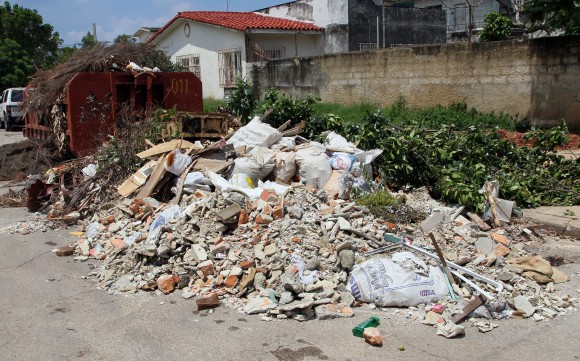
As of March, those who generate cadres like this in the Cuban capital will have to think about it and comply with the regulations of the local authorities. Photo: Ismael Francisco/Cubadebate
The provincial government of Havana, as part of the People’s Movement for a More Beautiful, Cleaner and Healthier Havana, has established that the state entities or families that carry out constructive actions in their properties are responsible for the final destination of the rubble generated. It must be deposited only in the sites defined for that purpose by the people’s councils.
As of March 1, this provision, in accordance with the City’s Ornamental Regulations, also establishes that the rubble may be deposited at the points defined by each people’s council, which will never coincide with the traditional points for depositing domestic waste.
In the case of residents in the municipalities of Central Havana and Old Havana, citizens and entities may contract the debris collection service to the Water Company of Havana.
In the remaining municipalities, this can be done by contacting the Provincial Direction of Hygiene, through the telephone numbers 7260-1440, Command Post, and 7260-3011, Commercial Department.
Violation of the rules may be subject to a fine of up to 3,000 pesos.
It is also established that each state or social entity is responsible for the permanent cleaning and beautification of its establishments, including its perimeter environment.
The structures of each people’s council, in close coordination and with the active participation of the CDR, FMC, CTC, ANAP and the Association of Combatants, will systematically develop mobilization actions aimed at maintaining cleanliness in the community, calling on families to deposit household waste at established collection points and during the hours of 6:00 p.m. to 10:00 p.m.
Those who violate this communal hygiene norm could be fined up to 1,500 pesos. Similarly, the person responsible for collecting the waste may be fined similarly if he or she fails to comply with it.
Cuban Guide Addresses Sexual Dysfunctions
IPS in Cuba
Cuba Has a Guide to Address Sexual Dysfunctions
It was one of the results shared at the 5th Scientific and Methodological Conference of the state-run National Center for Sex Education.
February 22, 2020
Translated and edited by Walter Lippmann for CubaNews.
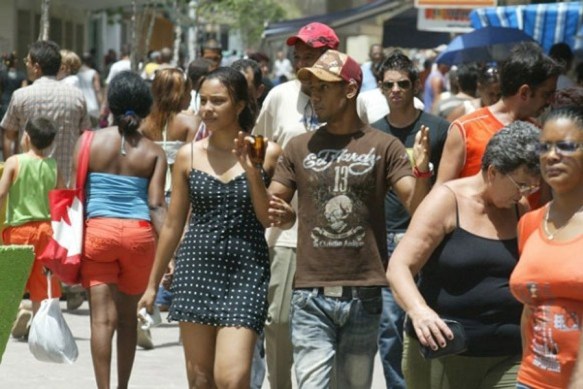
At the conference, it was revealed that guidelines are available to care for those suffering from sexual dysfunctions and disorders in Cuba.
Photo: Jorge Luis Baños/ IPS
Havana, 22 February – What should a doctor tell and guide a man with erectile dysfunction or a woman with an orgasmic disorder? Until very recently, there were no practical guidelines in Cuba for dealing with this health problem.
Today there are guidelines for attending to those suffering from male and female sexual dysfunctions and disorders thanks to a research project carried out by the state-run National Center for Sex Education (Cenesex), explained physician Elvia de Dios Blanco.
From 2016 to 2018, a team of 12 specialists worked on the systematization of the theoretical-methodological references that support care for sexual dysfunctions and disorders in the world and in Cuba, as well as the preparation and evaluation of the guidelines, De Dios said at the 5th Scientific-Methodological Conference of Cenesex.
In the first stage, she said, guidelines were designed for disorders of hypoactive male and female sexual desire, female orgasmic disorder, premature ejaculation and erectile dysfunction, which are the most frequent requests for attention.
In the second phase, guidelines were drawn up for female sexual arousal disorders, pain disorders and vaginismus, as well as paraphilic disorders, he said at the meeting, held Feb. 20, where the institution’s scientific results were presented.
“The ones the one on erectile dysfunction, hypoactive disorder and female orgasmic disorderare published in the Cenesex magazine Sexología y Sociedad. For those pending publication, we coordinated with the Ministry of Public Health to train facilitators for each of Havana’s 15 municipalities, and then extend them to other territories,” she said.
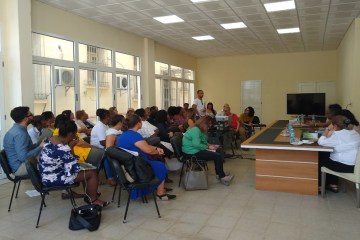
Moments from the day-long scientific conference.
Photo: IPS Cuba Archive
In her opinion, medical professionals are better prepared for male sexual dysfunctions than for female ones, “because really women come very little, they have their problems and they stay with them and don’t come. That happens worldwide, not just in Cuba.
In the expert’s opinion, the Cuban guidelines differ “from the rest of the models that exist internationally in that they include sexual education in all sexual dysfunctions and specify the functions of the integral general physician as a gateway to the health system.
Doctors “must explain to people who seek care the human sexual response, its modifications in the different stages of life, with chronic diseases and with drugs,” he said.
At the same time, she said, sex education should include the presentation of masturbation as a healthy form of sexual activity and the need for privacy in sexual relations.
Education, she insisted, involves making a 20-year-old diabetic man understand that if he doesn’t take his medication, when he is 40 he can develop atherosclerosis, because his fat metabolism is affected, his vessels become hard and blood doesn’t enter his penis.
New paradigms
The conference unfolded a full-day program, where other results and developments were presented.
The Cuban legislative schedule foresees the presentation to the National Assembly of People’s Power (unicameral parliament) of an amendment to the Public Health Law (Law 41 of 1983) by the end of 2020, with a view to moving away from the biomedical paradigm and towards a rights-based approach.
Jurist Ivón Calaña, head of the Legal Advisory and International Relations Department of CENESEX, explained that several groups of specialists are working on different proposals. One concern is that this law must be approved before the new Family Code (planned for 2021), which would leave out some issues, including the autonomy of adolescents in matters of sexuality.
One of the aspects that the health law would include is to clearly specify abortion as a right of women to voluntarily interrupt pregnancy, a procedure that has been available safely and free of charge for more than 50 years in the country.
If the current law referred to quality of health in terms of building care centers, developing the pharmaceutical industry and training personnel, the proposal takes a qualitative leap forward by privileging primary health care as the first level of care for individuals, families and the community in a comprehensive manner.
“From this change, the patient is seen as a subject of rights and duties, because there will be a legal relationship, typical of a service provision, like any other,” he said.
One of the areas analyzed is gender-based violence, which would allow the subsequent implementation of protocols for the care of victims, mainly women and children, she said.
The proposals introduce health concepts that have been absent until now, such as autonomy, integrity, informed consent, privacy, anatomical sex change, the right to decide on the body and obstetric violence, and the right to decide on the number and spacing of children, not only for infertile couples – as is the case in the proposed text – but for all couples.
The long-awaited code
The main advances in the area of sexual rights contained in the proposal of what would be the new Family Code were presented by Manuel Vázquez, deputy director of CENESEX, who is participating in the temporary group working on the text and has had as a good practice to conduct academic debates.
“That a Family Code is proposed, but rather than a name, it is a constitutional mandate in terms of plurality to recognize and protect all families, in all their diversity, regardless of the ways in which they are structured,” he stressed.
Among other aspects, the bill proposes the elimination of the exceptionality to contract marriage before the age of 18, the recognition of marriage and de facto union, the economic regime of marriage, the change of the term parental authority to parental responsibility, the procreational will and multi- and pluri-parenthood. (2020)
To 2020, Let’s Go Forward!

To 2020, Let’s Go Forward!
For young people, as for all of Cuba, 2019 has been a singular year, of many efforts, but also of surprising results that contribute to projecting new challenges for the immediate future
Published: Saturday 28 December 2019 | 09:52:20 pm
By Mileyda Menéndez Dávila, Odalis Riquenes Cutiño, Liudmila Peña Herrera, Javier Rodríguez Perera, Laura Brunet Portela, Iviani Padín Geroy, Zorileidys Pimentel Miranda, email: digital@juventudrebelde.cu
Translated and edited by Walter Lippmann for CubaNews.
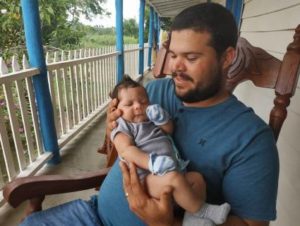
A child is the most beautiful thing you can have in life, says young farmer Hector Prieto Caraballo. Author: Zorileidys Pimentel Miranda Published: 28/12/2019 | 08:37 pm
The 2019 photo gallery is loaded with images that remind us of who we are and what paths we are on. We say “we are” in the present tense, because we understand that what we have experienced during the last 12 months has marked the national sentiment, the spirit and even the geography, in such a way that today, only hours before the arrival of 2020, it is very difficult to say “we were”, because much of what happened this year marks the paths or the roads that we must travel during the coming calendar year.
We must not forget that Cuba is the compilation of our daily poetry wrapped in kisses, sweat or tears, depending on its human beings and their circumstances. Cuba is the reality of each of our realities. Therefore, every achievement, every pending task, every goal – accomplished or to be accomplished – becomes the precedent for the next step.
A more than happy man
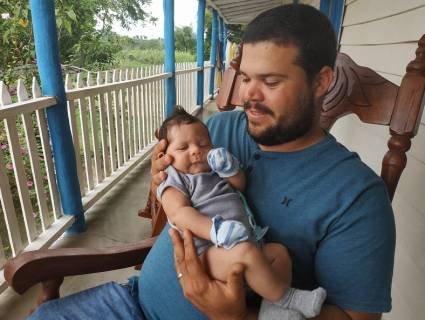
Héctor Prieto Caraballo knows this well. Only a month ago, he thought that the greatest happiness was limited to sunrise in the countryside, breathing pure air, working the land and enjoying its fruits.
That meant seeing his father, Héctor Luis Prieto, known as the Havana Man, happy, always glued to the ground to grow the leaves of what many call, not without justified chauvinism, the best tobacco in the world.
“Planting, picking tobacco, making bushes… everything is interesting, but planting is my favorite activity. Seeing that tiny stance grow gives me a very nice feeling because I can appreciate the results of my work,” explains Prieto Caraballo, a graduate of Técnico Medio en Agronomía.
But since last November 22nd, he knows that happiness is not only wrapped in green leaves, but it is also in the form of crying, gurgling, smiles, future. Happiness photography has a new and beloved face for the young man from Pinar del Rio.
“It is incredible the power that a smile of his has. A child is the most beautiful thing you can have in life,” he says proudly, adding, “I feel like a more than happy man. This is a year I will never forget: my first child, my family, the results in production. Everything has been very good for me.
Creativity in the face of obstacles
The same cannot be said of the promoters of restaurants in Havana, cocotaxi drivers or other means of transport dedicated to tourism, room renters and business owners who were affected in 2019 by the intensification of hostile measures by the United States government towards Cuba.
For them, this has been the year of economic cutbacks, of mutilated profits, of applying creativity as a solution to the ban on U.S. cruise ship travel to the Greater Antilles. This is how Raidel Regaiferos Sánchez feels -because he has lived it-. He has been working for more than a year as a promoter of the restaurant Habana Boulevard, in the capital city.
“When I started working here, the restaurant was full almost all the time, like the rest of this type in Old Havana. But when Trump decided to have the cruise ships say goodbye to the harbor in the bay, many of the promoters changed jobs, since the pay depends on the consumption by the diners who come to the restaurant.
Faced with such a complex panorama, which translates into less income for the development of the non-state sector. Though Trump says that every measure tries to [only] affect the Cuban government, Raidel and his colleagues have no other option but to appeal to creativity and the reformulation of commercial strategies in order to “fall in love” with clients and not close the deal.
“Since then, we’ve had to update prices and update the menu, as well as implement other alternatives when it comes to promoting the site, and adding national consumers”. He says who would be happy if 2020 would bring longed-for opportunities to prosper, without measures “from outside” that attempt to destabilize “inside.”
Hope for many

Still in young Martha Regla Beltrán Boza’s memory is the devastating tornado that destroyed her home.
Photo: Mileyda Menéndez Dávila
Martha Regla Beltran Boza believed that 2019 would be the worst year for her and her family. They’re known as “the Many” because it is a nucleus with 24 people from three generations, all born and raised on the slopes of Lenin Hill, in Regla.
On the night of January 27, Martha had gone out to the street because she wanted to eat peanuts, but something in the air disturbed her and she ran back to bed with her mother. Minutes later, the roofs of the tiny wooden house fell on them, and behind them a nearby Yagruma tree, uprooted by the strong winds of the tornado that destroyed several areas in five municipalities of the capital.
“Now the family was really out on the streets,” he thought. Fortunately, a neighbor provided his small home so that a part of “los Muchos” would be aware of the recovery of the property, taken up by the Julio Antonio Mella contingent, which in this case became practically the entire onstruction, from the foundations, of three two-story masonry houses.
“They made us up to the entrance corridor, which until then was made of earth,” she says with relief. Today, she is in the third year of a pre-university educational program and dreams of soon joining a primary school classroom to teach literature, which is her favorite subject.
The usefulness of virtue
In Santiago de Cuba, the young hands of José Ruberlandis Vázquez Enrys, Sayonara Destrade Castillo and Indira Jardines Durán bear the mark of the effort to be useful in the face of the challenges posed by difficulties. Their energy and enthusiasm have been decisive in promoting the idea of food production parks, a Santiago-based initiative that is already recognized in the country for reproducing the artisanal practices of traditional gastronomy on a large scale, with a minimum of electricity and zero diesel fuel.
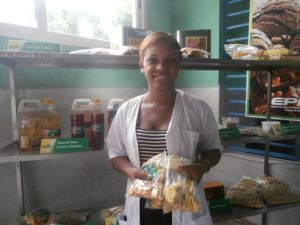
“The estate has allowed me to develop in the production of food for the people,” says Indira Jardines Durán. Photo: Odalis Riquenes Cutiño
The alternative came to life in March 2019, in areas of the Ice Cream Wafer Factory. It’s located on Patria Avenue. Saltine cookies of various types and 100% rice cookies, candies of various shapes and flavors, homemade mayonnaise, cakes and pancakes, cassava and cassava frying, peanut and coconut nougats, pru, vinegar, sweet and dry wine, liquors, fruit and hard chilled ice cream, cassava, raspberry, Cuban pasta, instant soda, breads and sweets with flour spreaders. These make up a varied amalgam of products that are highly appreciated by the consumers who receive them. This is both in an Ideal Market and in cafeterias and points of sale in the Santiago food industry. Ruberlandis, Sayonara and Indira feel the satisfaction of having dedicated these last months to producing food for their people, using natural fuel: coal, firewood, bagasse and coconut shells. For them, 2019 can be summed up in two words: to be useful.
A “busy” year

Massiel Cano Garcia says that 2019 was a year to show who today’s young people are. Photo: Laura Brunet Portela
“When the Young Communist League calls, when your university asks for a hand, when the president of the country himself trusts the young people and believes we can do more, then there is no one who is not motivated,” says Massiel Cano Garcia, a student in special education.
A pile of photos he has on his mobile phone show that 2019 was a very busy year: “It was full of proposals and opportunities to show who we are as young people today,” he says.
With his finger, he slides the snapshots of the productive activities that made his University one of the best: planting potatoes in the middle of a field, or giving away smiles at the pediatric hospital.
Massiel keeps memories of all those moments, to show that the energy of his youth is transmitted, transformed and produced. “Watching over the savings in the companies in my neighborhood was something I did to feel useful and help my country move forward,” he recalls.
“It wasn’t a question of reporting to anyone. We didn’t have plans or figures to accomplish in one day. It was just “making us feel”, making those who didn’t know how important it was to save aware of it. And she recalls that Prado went up and down in shops, bakeries, commercial establishments, companies and homes, inspiring people, winning hearts.
“The idea was to convince people that no matter how insignificant it might seem, a simple click also mattered,” says those who now dream of dedicating their lives to special education. “My greatest wish is to be a good teacher for children with special educational needs.
A high jump
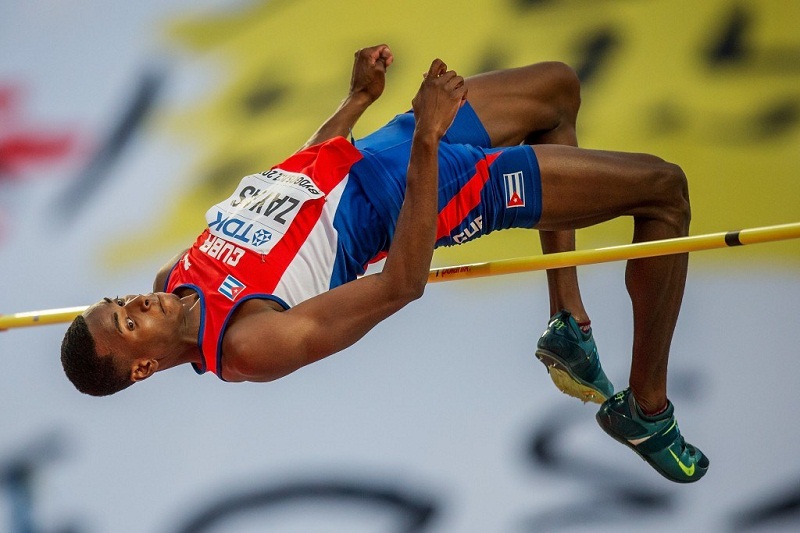
For Luis Enrique Zayas, who became a starter at the Pan American Games in Lima, this year has been a sort of Copernican turn in his life. Photo: IAAF
For someone like Luis Enrique Zayas, who several times has considered not giving another drop of sweat for the sport he practices, still young but with several fiascos. This year has been a kind of Copernican turn for his life. With hardly any possibility of participating in the Pan American Games in Lima, almost ten days before their start, he was informed of their presence. Forecasts placed him far from the podium, but in the Peruvian capital the triumphant apotheosis took place.
It was on August 9 when the high jumper shattered all the speculations and became the biggest surprise of the Cuban delegation in Lima. He invaded the summit with the best of his life, a jump of 2.30 meters, three centimeters higher than his previous personal best, achieved in 2016 when, breaking the same predictions, he became the world youth champion.
“I concentrated a lot on the whole competition and that’s how that gold medal came out, something super big for me, my family and Cuban athletics. In the meantime, I qualified for the World Athletics Championships in Doha”, said the athlete from Santiago, who has realised that life is a stage of constant tests and he, as a “good actor”, emerged as a protagonist more than once.
In 2020, looking ahead
Diverse in nuances, complex because of the ups and downs and the obstacles; full of successes and sacrifices… 2019 is falling behind. Once again we close a cycle, but we remain with the list of what we have accomplished or what is still pending, in order to focus our gaze on what we want to mark our life since January 1st, always with the conviction that we hum along with the Buena Fe group: we will receive it “head-on” in 2020.
Cuba and Shared Parenting Rights
CUBA: The Horrible “Dictatorship” Providing Shared Parenting Rights
LA GUACAMAYA ROJA
by Marta López Fesser
December 17, 2019
Translated and edited by Walter Lippmann for CubaNews.
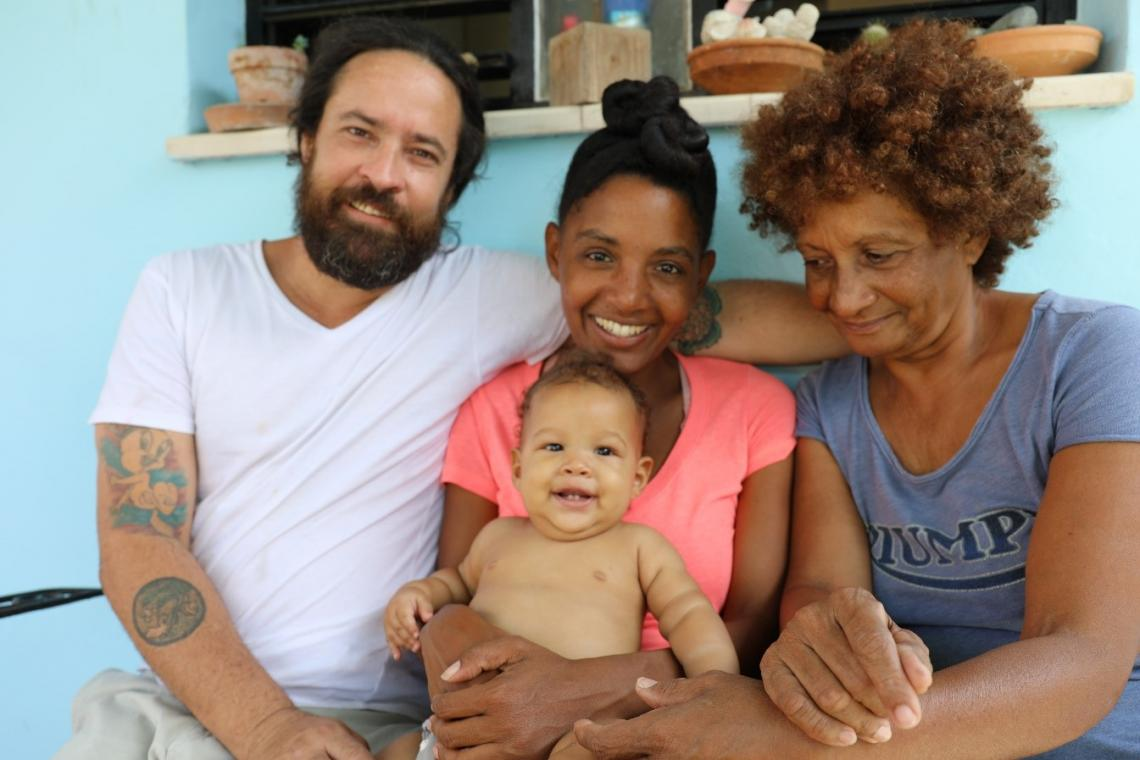
*Free kindergarten for 2 years
*6 months paid maternity leave
*Paid paternity leave
Only 15 countries in the world have these 3 basic policies to facilitate shared parenting. Cuba is the only one in Latin America, it has the happiest babies in the world. reports UNICEF.
In Cuba, thanks to family-friendly policies, couples break gender norms by sharing parental responsibilities.
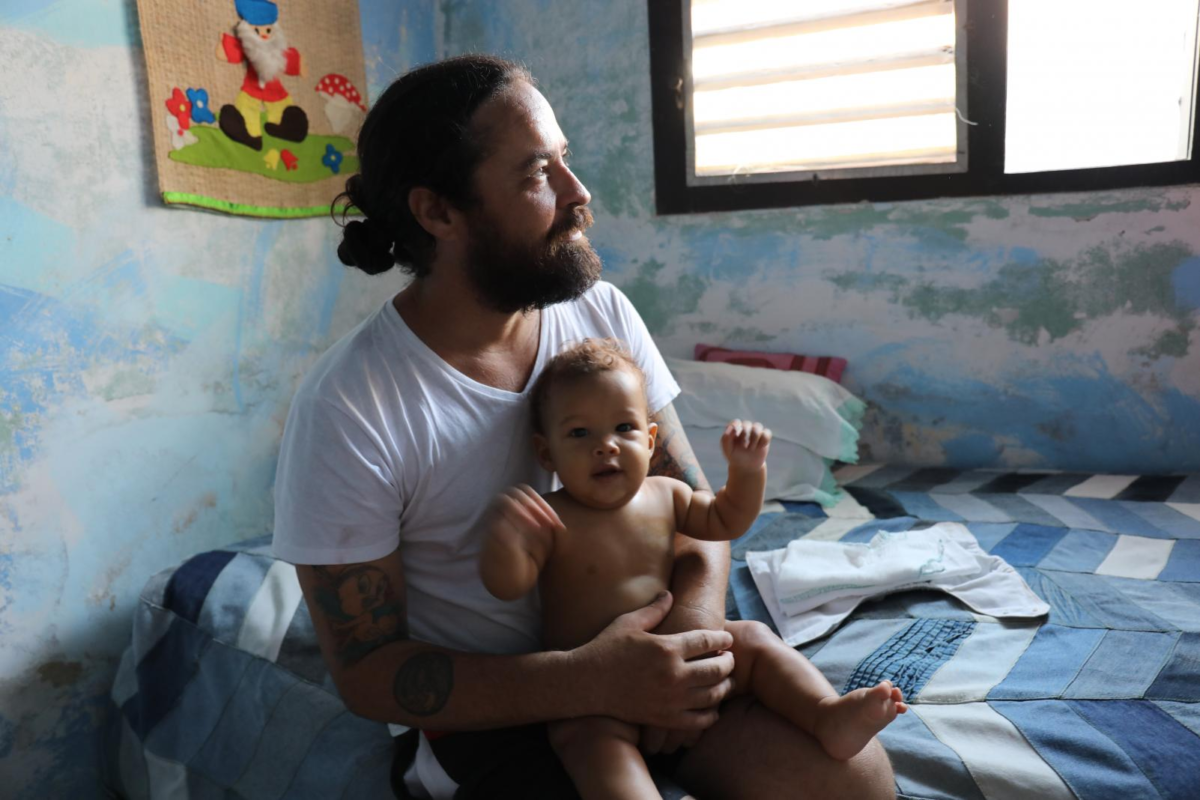
HAVANA, Cuba – When Juan Carlos and Maria decided to start a family three years ago, they knew there was only one way to raise children. “For a family to work, you need a team: that means sharing all the tasks and responsibilities,” says Juan Carlos.
Juan Carlos, who would be a first-time father, did not yet know the intricacies of fatherhood, but he knew he had to be present. “There are things we can’t share, like the discomfort or the physical weight of the pregnancy, but I can be there for [Maria], so that we can learn together and share this journey,” he says.
Juan Carlos did his best not to miss any of Maria’s medical exams before delivery. At the consultation, the couple observed that most of the instructions and advice given them was directed directly to her. Juan Carlos had to insist on his interest in being taken seriously. He wanted to know what his role was, how he could help his son reach his full potential, but he didn’t know who to turn to.
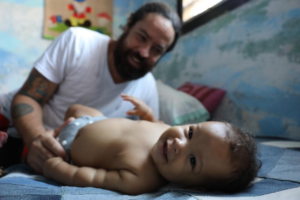
Juan Carlos plays with his youngest son, Oliver, after changing his diaper.
Family-friendly policies in Cuba
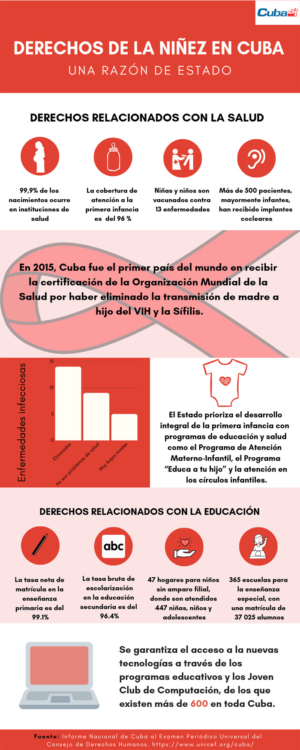
Cuba is one of 15 countries with three basic social policies and programs to help mothers and fathers: free public preschool education for the first two years; a minimum of six months of paid maternity leave to facilitate breastfeeding; and 12 months of paid paternity leave after the birth of the baby.
For a family to work, you need a team: that means sharing all the tasks and responsibilities.”
However, despite these programs and policies, social norms and structural barriers in Cuba make it difficult for men to participate equitably in all stages of child-rearing. Only 18 percent of fathers participate in educational activities with their children during early childhood; only 33.2 percent of children under six months of age receive exclusive breastfeeding benefits, and only 125 fathers were able to take paternity leave between 2003 and 2014.
As a result, many children do not fully benefit from having a paternal figure central to their development.
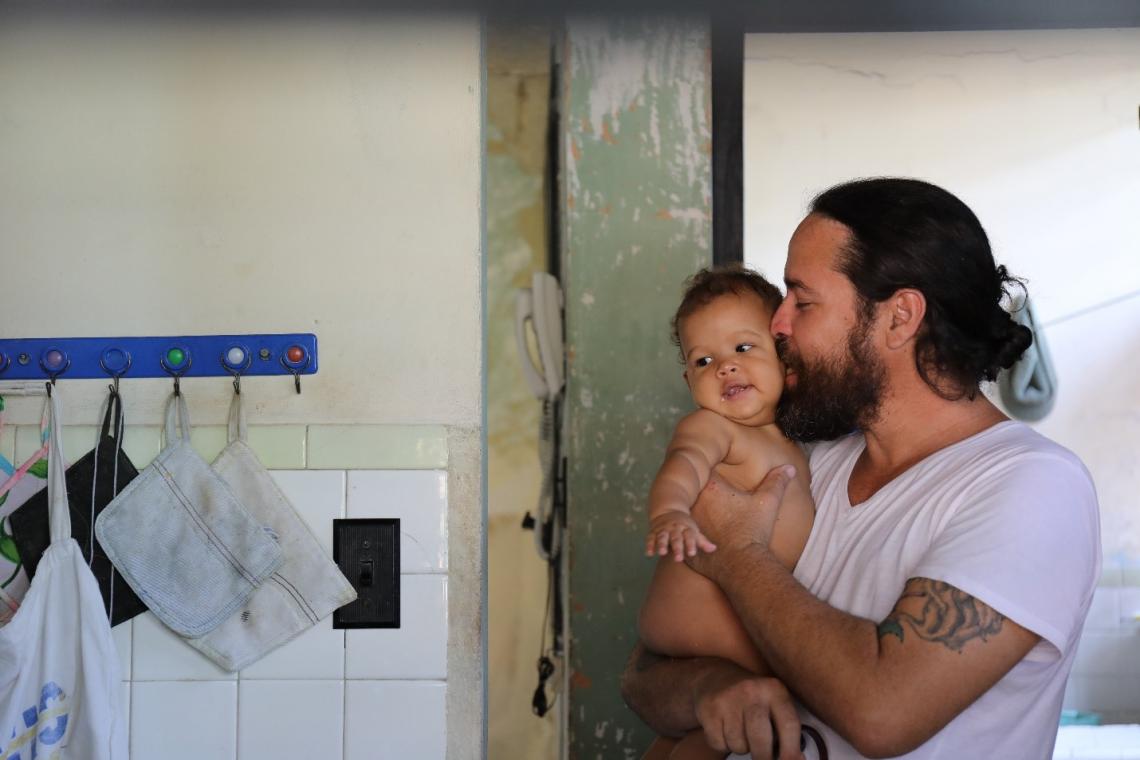
UNICEF Cuba/2019
Leverage critical resources
When Maria recently became pregnant with Oliver, her second child, she and her partner did everything possible to take advantage of the resources at their disposal. “You can never be prepared enough,” says Maria. “Being a mother or father means learning that what you do and what you don’t do has lasting repercussions on the development and happiness of your children. It’s a deep, vital reflection that encourages you to want to do things right from the beginning.
On this occasion, they learned that they had access to free childbirth classes. “They were very useful; we met other couples in the same situation,” she says.
They also knew that MarIa had the right to choose a person to accompany her in childbirth, and Juan Carlos wanted to take advantage of this opportunity. “For me, it was a vital and unrepeatable experience that I believe all parents should live. It’s hard to imagine the pain and sacrifice that women have to suffer,” he says. “That arrival commits you for life.
Juan Carlos learned about these rights and services through the communication materials of “Padre desde el principio,” [Father From the Beginning] an initiative led by Cuba’s Ministries of Education and Health with help from UNICEF. The aim is to engage fathers by informing them of their rights, responsibilities and the benefits of shared fatherhood in an equitable manner.
Maria exclusively breastfed her two children for the first six months of their lives. “It would not have been possible without Juan Carlos. It is true that I am the only one who can feed them, but Juan Carlos was the one who got up at night to bring them to me and who took care of the household chores.
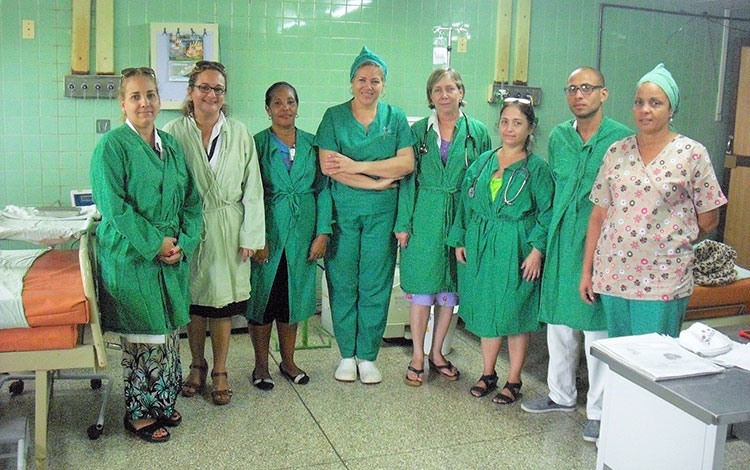
Combating gender roles for future generations
Juan Carlos was also the one who stayed at home with his children when Maria’s maternity leave ended, so she was able to return to work. “It’s been a wonderful experience,” he says. “Having a role in [their lives] from the beginning gives you the security to take care of them completely, and enjoy it!”
Maria agrees: “He has not only taken on traditional roles, such as washing and cleaning, preparing food or caring for the baby: they have also spent quality time together, developing a parent-child bond that will be the basis of their relationship in the future.
The “Father From the Beginning” initiative promotes equal parental responsibility from birth, precisely because if parents are involved from the beginning, they are more likely to continue to be involved throughout their children’s lives. Parents who are actively involved from the outset not only demonstrate a greater commitment to protecting their children from violence and prioritizing their education and health: they also challenge deeply rooted beliefs and stereotypes of masculinity.
“At first, our neighbors thought that our way of raising our children was strange, but they no longer see it that way,” says Juan Carlos. “I see a change: younger generations are evolving.
Bucanero and Cristal at Way-Too-High Prices

Bucanero and Cristal at High Prices in Private Sector, But Gone From State Stores
By Tay Beatriz Toscano Jerez
July 17, 2019
Translated and edited by Walter Lippmann for CubaNews.
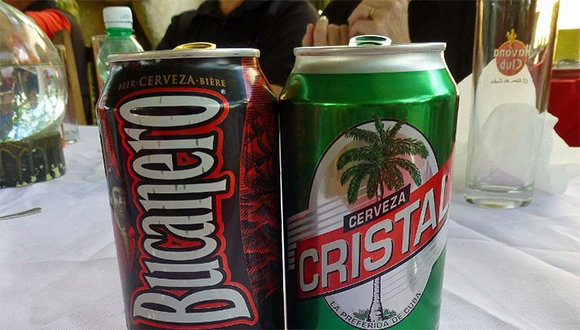
At 200% of your selling price, maybe 250% of your cost price. For someone who didn’t invest a drop of sweat in producing them. Only in Cuba. Photo: September 5.
Surely the high temperatures of these days has evoked thoughts of having a beer to cool off. Perhaps you have decided to have a family reunion and, why not, taste a Bucanero or a Cristal. If you don’t change your brand (and quality), you have a very difficult time.
For some time now, it has been difficult to find the two emblematic beers produced domestically in the chain stores. However, in the private gastronomic establishments, restaurants, bars and/or cafés they are can always be found without problems and at a price that sometimes (according to “cache”) doubles their original price.
It’s really incredible: at 200% of their selling price, perhaps at 250% of their cost price. For someone who didn’t invest a drop of sweat in producing them. Only in Cuba.
What is the source of supply for those private “paladares” if, for example, in the TRD Caribe chain, only two boxes per person are sold (if the regulations were really complied with)? How many times should the waiting lines be or how many should accompany the owner of the restaurant in order to have a sufficient quantity to maintain their supply in a constant manner?
It is worth looking at this phenomenon, especially because it advocates not raising prices and because it causes equitable access to products of all kinds. Let’s remember that the country has already implemented measures of various kinds, including setting up a store for self-employed workers.
For none of us, it is a secret that there are not a few citizens whose livelihood depends precisely on being aware of how much is on sale in the CIMEX stores and the former TRD stores, in order to access as much as possible and then make a profit. Logically, however, they are not “fortune-tellers” nor do they have a particular information system that knows where things are and when.
They have their information system and their source of supply in the stores themselves. If not, how is it possible that they are almost always the first to acquire from an affordable price for the beers that have motivated this comment?
If not, the press will continue to denounce and, unfortunately, things will remain the same. This generates discredit, and not only in us journalists.
This can’t be the never-ending story. Nor does it deserve the disdain or lack of attention of all those who – in acting jointly – can and should close the way to this issue. Far from becoming a solution, has today become a problem since, on the one hand, access to beer is limited and on the other, it impacts strongly in the pocket of those who like the refreshing drink.
It is therefore imperative to enforce what has been ordered; to follow that skein that seeks to suffocate the normal course of the country’s economic and commercial processes and, let us reiterate, the pockets of the people.
It is clear that under no circumstances will the steep rise in prices be allowed; neither of the beers, nor of any other product necessary for everyone. It must not be done by the state or private sector. That is also a way of thinking as a country, thinking like Cuba.
Subscribe to Blog via Email
| M | T | W | T | F | S | S |
|---|---|---|---|---|---|---|
| 1 | 2 | 3 | 4 | |||
| 5 | 6 | 7 | 8 | 9 | 10 | 11 |
| 12 | 13 | 14 | 15 | 16 | 17 | 18 |
| 19 | 20 | 21 | 22 | 23 | 24 | 25 |
| 26 | 27 | 28 | 29 | 30 | 31 | |

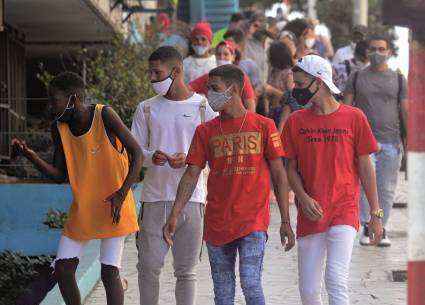
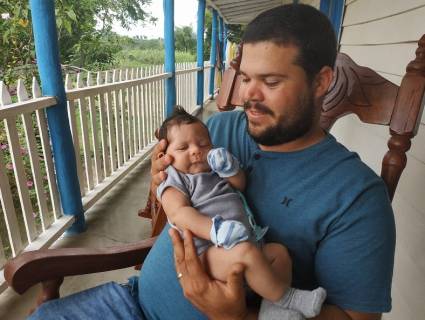
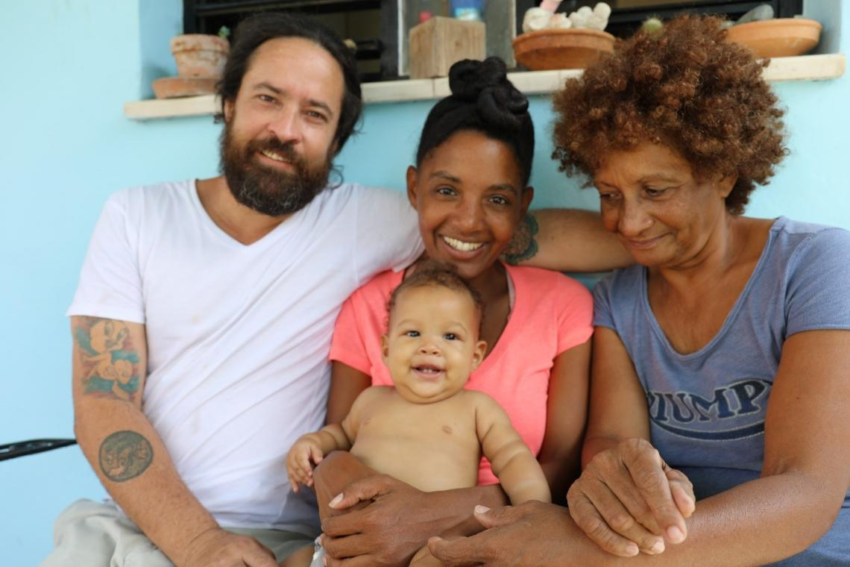
You must be logged in to post a comment.